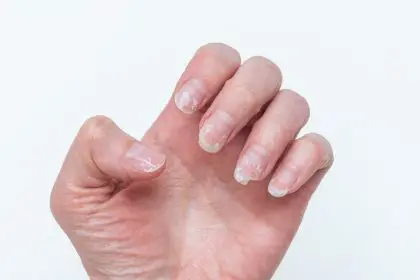Living with missing teeth can be a significant challenge, affecting not only your oral health but also your confidence and quality of life. Fortunately, dentures offer a viable solution to this problem, providing numerous benefits over living with gaps in your smile. In this article, we’ll explore why opting for dentures is a preferable choice and how they can transform your daily experiences and long-term health.
The impact of missing teeth
Before delving into the advantages of dentures, it’s crucial to understand the effects of missing teeth on your oral and overall health.
Oral health decline: Missing teeth can lead to several dental health issues, including the shifting of adjacent teeth, loss of jawbone density and changes in bite. These alterations can cause difficulties in chewing and speaking, which can further affect your nutrition and social interactions.
Aesthetic and psychological effects: A gap in your smile can significantly impact your self-esteem and how you interact with others. Many people with missing teeth report feeling self-conscious and less willing to smile.
The benefits of dentures
Dentures are more than just a cosmetic fix; they offer substantial benefits that make them a superior option compared to living with missing teeth.
1. Improved facial structure and appearance
Dentures help in maintaining the structure of your face. They support your facial muscles and prevent them from sagging, which is common in people with several missing teeth. This support not only enhances your appearance but also aids in clearer speech, making communication easier and more effective.
2. Enhanced oral functionality
With dentures, you can enjoy a broader range of foods than you could with missing teeth. They are designed to mimic your natural teeth’s functionality, improving your ability to chew and thus contributing to better nutrition and overall health.
3. Customization and comfort
Modern dentures are highly customizable, which means they can be tailored to fit comfortably in your mouth and match your natural teeth’s appearance. This customization makes them a discreet and comfortable option for tooth replacement.
4. Protection for remaining teeth
If you have some natural teeth remaining, dentures can help protect them by evenly distributing the forces in your mouth during eating. This can reduce wear and tear on your natural teeth and help preserve them longer.
Types of dentures
Understanding the different types of dentures available can help you make an informed decision about which option is best for you.
Complete dentures: Used when all teeth are missing on the upper or lower jaw. They rest on the gums and are typically held in place by suction or, in some cases, dental adhesives.
Partial dentures: Ideal for those who still have some natural teeth remaining. Partial dentures are supported by the remaining teeth and gum line, and they help prevent other teeth from shifting positions.
Implant-supported dentures: These provide a more secure fit by attaching to implants surgically placed in your jawbone. This option is increasingly popular due to its stability and the preservation of jawbone health.
Care and maintenance
Maintaining dentures is crucial for their longevity and your oral health. Daily cleaning, regular dental checkups and handling them with care are essential practices to keep your dentures in optimal condition.
Opting for dentures
Opting for dentures over living with missing teeth is a transformative decision that can greatly enhance your quality of life. Not only do dentures improve your oral health by preventing the adverse effects associated with tooth loss, but they also restore functionality, enabling you to enjoy a wider variety of foods and communicate more effectively. The aesthetic benefits are equally significant; dentures help maintain your facial structure and boost your self-esteem by providing a full, confident smile.
Dentures are not just a practical solution but also a customizable one, with various types available to suit different needs and preferences. Whether you need complete, partial or implant-supported dentures, there is an option designed to offer comfort and a natural appearance. Consulting with a dental professional is crucial to selecting the right type of dentures for your specific situation. They can guide you through the process, from choosing the right fit to adjusting to your new dentures.
Embracing the change that dentures bring can open the door to a happier and healthier lifestyle. With proper care and maintenance, your new dentures can lead to a more fulfilling life, allowing you to smile freely and live without the limitations posed by missing teeth.
This story was created using AI technology.











